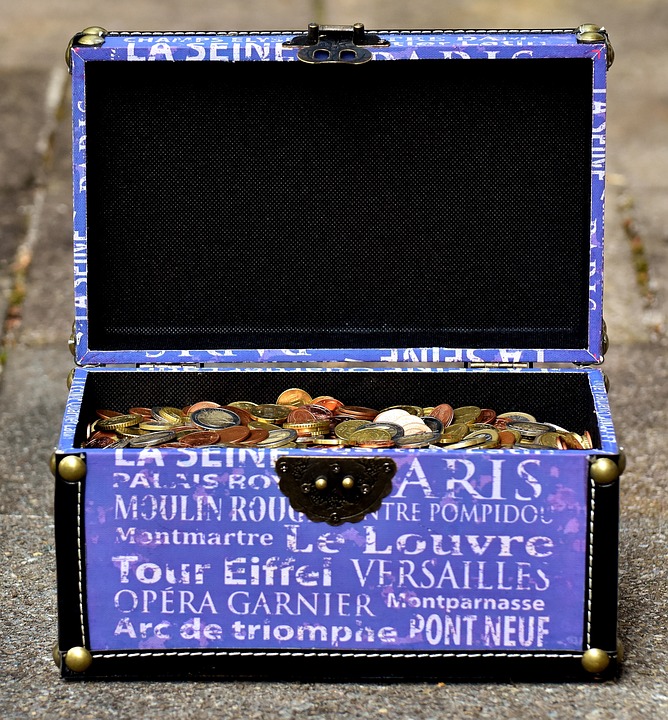Last updated Jul. 25, 2024 by Okechukwu Nkemdirim
Why These 2 People Are So Glad They Had Emergency Savings
In a world where financial stability can often seem elusive, the importance of maintaining an emergency savings fund is highlighted time and again. Emergencies are unpredictable and can happen to anyone, anywhere, and at any time. These unexpected events can range from medical emergencies and job loss to urgent home repairs and car breakdowns. Two individuals, Anna and Michael, share their poignant stories about how their emergency savings were nothing short of lifesavers during critical moments in their lives.
Anna’s Medical Emergency
Anna, a 34-year-old marketing executive, had always been prudent with her finances. Growing up, she observed her parents struggle through financial crises and vowed not to fall into the same pattern. Anna had been setting aside money into an emergency savings fund religiously for years, aiming to accumulate about six months’ worth of living expenses.
The Unforeseen Crisis
One early morning, Anna woke up with severe abdominal pain. She tried to ignore it, thinking it was a minor issue, but the pain rapidly escalated. A visit to her doctor revealed that she had an acute appendicitis, requiring immediate surgery. The surgery was successful, but Anna had to take a month off work for recovery. Despite having health insurance, she faced substantial out-of-pocket expenses, including deductibles, medication, and post-surgery care costs.
Why She’s Grateful
Anna is thankful she had emergency savings for several reasons:
- Immediate Access to Funds: She could immediately cover the medical bills without stressing about where to get the money.
- Reduced Stress: Knowing she had a safety net allowed her to focus on her recovery rather than worrying about finances.
- Maintained Credit Score: She didn’t have to resort to high-interest loans or credit cards, which could have negatively impacted her credit score.
- Continued Financial Stability: Even though she was on unpaid leave, her emergency savings covered her living expenses seamlessly.
Anna’s Takeaway: "Having an emergency fund is like having financial armor. It protects you when life throws its unexpected punches."
Michael’s Job Loss
Michael, a 45-year-old software developer, had been with his company for almost a decade. His role provided a stable income, and he had always saved a portion of his earnings. While Michael understood the general wisdom of having an emergency fund, he never anticipated just how critical it would become.
The Unexpected Layoff
One afternoon, Michael received a devastating email from HR: his department was being downsized, and his role was terminated effective immediately. The company was restructuring, and despite his significant contributions over the years, he found himself jobless. The shock was immense, and the realization that his primary source of income had vanished overnight was daunting.
Why He’s Thankful
Michael’s emergency fund became his lifeline during this difficult period:
- Coverage of Essential Expenses: His emergency savings covered his mortgage, utility bills, and other essentials, preventing any immediate threat to his lifestyle.
- Time to Find a Suitable Job: Instead of rushing into a low-paying job out of desperation, Michael could take the time to find a new role that matched his skills and career aspirations.
- Mental Well-being: The peace of mind provided by his emergency savings allowed him to focus on job hunting without the added anxiety of financial stress.
- Avoiding Debt: With his emergency fund, Michael successfully avoided accruing debt from loans or credit cards during his unemployment.
Michael’s Insight: "My emergency fund didn’t just support me financially; it gave me the gift of time and peace of mind during one of the most challenging phases of my life."
Importance of Emergency Savings
The experiences of Anna and Michael underscore the significance of having an emergency savings fund. Here are some fundamental reasons why an emergency fund is vital:
- Financial Security: It provides a financial cushion that shields you from the shock of unexpected expenses, ensuring you can navigate through crises without compromising your financial stability.
- Stress Reduction: Knowing you have a safety net reduces anxiety and allows you to deal with emergencies more calmly and effectively.
- Avoiding High-Interest Debt: With an emergency fund, you can avoid high-interest loans or credit card debt during crises.
- Flexibility: An emergency fund gives you the flexibility to make better decisions in emergencies, whether it’s taking time to find a new job or focusing on recovery from an illness.
Building an Emergency Fund
Establishing an emergency fund doesn’t have to be overwhelming. Here are steps to help you get started:
- Set a Realistic Goal: Aim to save at least three to six months’ worth of living expenses.
- Automate Savings: Set up automatic transfers to your emergency fund to ensure regular contributions.
- Cut Unnecessary Expenses: Review your budget and cut back on non-essential expenditures to boost your savings.
- Earn Extra Income: Consider side gigs or freelance work to generate extra income for your emergency fund.
- Use Windfalls Wisely: Allocate bonuses, tax refunds, or other windfalls to your emergency fund.
FAQs about Emergency Savings
How much should I save in my emergency fund?
It’s generally recommended to save three to six months’ worth of living expenses. However, the exact amount can vary based on your personal circumstances, such as job stability, number of dependents, and living costs.
How do I start saving for an emergency fund?
Start small and build gradually. Determine a monthly saving amount that works within your budget and set up automatic transfers to your emergency savings account.
Where should I keep my emergency fund?
An emergency fund should be easily accessible but separate from your regular checking account. High-yield savings accounts, money market accounts, or short-term certificates of deposit (CDs) are good options.
Can I use my emergency fund for non-emergencies?
It’s best to reserve your emergency fund strictly for genuine emergencies, such as medical expenses, job loss, or urgent repairs. Using it for non-emergencies can deplete your safety net, leaving you vulnerable during actual crises.
How do I replenish my emergency fund after using it?
Prioritize rebuilding your emergency fund as soon as possible by adjusting your budget, cutting non-essential expenses, and increasing your savings contributions until you reach your goal again.
✓ Short Answer
Anna and Michael’s stories highlight the importance of emergency savings. Anna’s fund helped her cover medical expenses and recovery time stress-free, while Michael’s fund shielded him financially after an unexpected job loss, allowing him time to find a suitable new job without incurring debt. Their experiences underline the critical role emergency savings play in maintaining financial stability and peace of mind during life’s unexpected crises.
Conclusion
The stories of Anna and Michael illuminate the profound impact an emergency savings fund can have on one’s life. Whether facing a sudden medical crisis or an unexpected job loss, having a financial safety net provides not just financial security, but also peace of mind and the ability to navigate life’s challenges with resilience and grace. Establishing and maintaining an emergency fund is an essential component of sound financial planning, one that everyone should prioritize to safeguard their future.
Prioritize your financial health by starting or bolstering your emergency savings fund. It’s an investment in your future stability and peace of mind.




![The Top Four Resources for Financial Literacy [2023]](https://paypant.com/wp-content/uploads/2024/06/The-Top-Four-Resources-for-Financial-Literacy-2023-768x512.jpg)

![Can’t Afford to Live on My Own? [Do These 38 Tips]](https://paypant.com/wp-content/uploads/2024/06/Cant-Afford-to-Live-on-My-Own-Do-These-38-768x512.jpg)